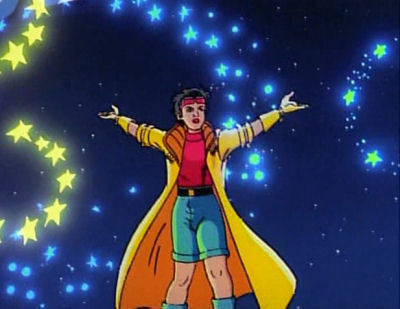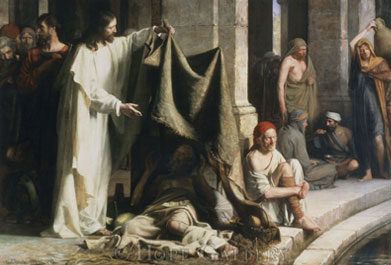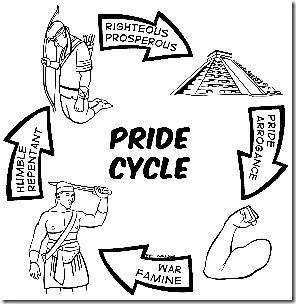Before I launch into the body of a new post I wanted to share an interesting Ted Talk by Nick Hanauer (a venture capitalist worth over $1 billion) as a follow up to the last post and the discussion that ensued thereafter. If you’re curious who are the true job creators give the five minute video a look (o:
The United States is the land of the individual. According to Geert Hofstede’s cultural dimensions theory, which is generally accepted as the most comprehensive framework of national culture values, we are actually number one in this category. In our society we celebrate and one may even say worship our celebrities that are models of fame and fortune...people who have made it big all by themselves. We have debates over statements such as “you didn’t build that,” and the “47%”. The very idea of the American Dream is deeply individualistic. Even our faith communities have taken on the tone of individualism where it is all about personal responsibility rather than focusing on the broader interdependent web of life. Yet we live in a nation divided, often ignorant of the poverty all around us. Walter Raushenbusch wrote his seminal work Christianity and the Social Crisis in 1907 in when he witnessed the problems of inequality and its conflict with Christianity over 100 years ago! One of his powerful insights reads:
In the past the sympathy between the richer and the poorer members of American society has still run strong. Many rich men and women were once poor and have not forgotten their early struggles and the simple homes of their childhood. As wealth becomes hereditary, there will be more who have never known any life except that of luxury, and have never had any associates except the children of the rich or their formerly the wealthiest man in a village or town still lived in the sight of all as a member of the community. As the chasm widens, the rich withdraw to their own section of the city; they naturally use means to screen themselves from the intrusive stare of the public which concentrates its gaze on them; they live in a world apart, and the mass of the people have distorted ideas about them and little human sympathy for them.
If these words rang true a century ago how much more accurate are these observations today? In a world with social mobility in decline, highways that allow us to drive quickly by unseemly neighborhoods, gated communities, segregated neighborhoods, suburbs, inner cities, and projects are we moving in the right direction?
In this area I aim to be decidedly unAmerican and return to the collectivist spiritual teachings of Judaism, Christianity, Mormonism and Buddhism...without the influence of contemporary American individualistic mores. Obviously the scope of this task is enormous so I will focus on one or two areas from each that has been especially enlightening.
In the past the sympathy between the richer and the poorer members of American society has still run strong. Many rich men and women were once poor and have not forgotten their early struggles and the simple homes of their childhood. As wealth becomes hereditary, there will be more who have never known any life except that of luxury, and have never had any associates except the children of the rich or their formerly the wealthiest man in a village or town still lived in the sight of all as a member of the community. As the chasm widens, the rich withdraw to their own section of the city; they naturally use means to screen themselves from the intrusive stare of the public which concentrates its gaze on them; they live in a world apart, and the mass of the people have distorted ideas about them and little human sympathy for them.
If these words rang true a century ago how much more accurate are these observations today? In a world with social mobility in decline, highways that allow us to drive quickly by unseemly neighborhoods, gated communities, segregated neighborhoods, suburbs, inner cities, and projects are we moving in the right direction?
In this area I aim to be decidedly unAmerican and return to the collectivist spiritual teachings of Judaism, Christianity, Mormonism and Buddhism...without the influence of contemporary American individualistic mores. Obviously the scope of this task is enormous so I will focus on one or two areas from each that has been especially enlightening.
JUBILEE
In the Jewish books of the Old Testament we can find God’s passion for justice and equality as he called for His people to practice the sabbatical year and Jubilee. A quick summary by Andre Trocme:
First-Every seventh year the land was to lie fallow. By a special blessing of Yahweh, that land would produce a double harvest during the sixth year.
Second-During the seventh year all debts between Hebrews were to be cancelled.
Third-After six years of slavery every Hebrew slave was to be set free by his master.
Fourth- (reserved for the Jubilee, every 49 years)-Each family was to regain possession of the land and houses it had lost in the meantime. Between two Jubilees a buyer owned the land only temporarily. As the year of Jubilee approached, the value of the land dropped in proportion to the remaining years of tenure.
Can you imagine if this were to be practiced today? The Biblical God very much cares about the poor and oppressed and how society treats them. Scripture is often used to examine and condemn individual sins of sexual morality but seldom is heard the call for social justice. It may be totally unrealistic to imagine such a dramatic change being instituted in the United States but it does offer a little more credence to the idea of a more progressive economic arrangement.
In the Jewish books of the Old Testament we can find God’s passion for justice and equality as he called for His people to practice the sabbatical year and Jubilee. A quick summary by Andre Trocme:
First-Every seventh year the land was to lie fallow. By a special blessing of Yahweh, that land would produce a double harvest during the sixth year.
Second-During the seventh year all debts between Hebrews were to be cancelled.
Third-After six years of slavery every Hebrew slave was to be set free by his master.
Fourth- (reserved for the Jubilee, every 49 years)-Each family was to regain possession of the land and houses it had lost in the meantime. Between two Jubilees a buyer owned the land only temporarily. As the year of Jubilee approached, the value of the land dropped in proportion to the remaining years of tenure.
Can you imagine if this were to be practiced today? The Biblical God very much cares about the poor and oppressed and how society treats them. Scripture is often used to examine and condemn individual sins of sexual morality but seldom is heard the call for social justice. It may be totally unrealistic to imagine such a dramatic change being instituted in the United States but it does offer a little more credence to the idea of a more progressive economic arrangement.
Jesus and the poor
What did Jesus of Nazareth have to say about the poor and inequality? If you have ever read the Gospels of the New Testament it becomes immediately evident that this was a critical priority. From the Lord’s prayer, the Sermon on the mount, to the parables, the rich young ruler, the widow’s mite and so many more the poor were of far greater importance than individual choice/freedom and far higher on the list than sexual impropriety. Yet if you were to attend the average American church would this be the case? I turn to Jim Wallis and a two minute video (below) for an excellent summary and what the Bible might be like without the poor.
What did Jesus of Nazareth have to say about the poor and inequality? If you have ever read the Gospels of the New Testament it becomes immediately evident that this was a critical priority. From the Lord’s prayer, the Sermon on the mount, to the parables, the rich young ruler, the widow’s mite and so many more the poor were of far greater importance than individual choice/freedom and far higher on the list than sexual impropriety. Yet if you were to attend the average American church would this be the case? I turn to Jim Wallis and a two minute video (below) for an excellent summary and what the Bible might be like without the poor.
Book of Mormon and the Pride Cycle
In the Book of Mormon the underlying story is that a branch of ancient Israel travels to the Americas where they struggle to remain faithful to God in a new land despite divisions, wickedness and forgetfulness in a perpetual cycle of faith, blessing, pride, trials and humility. Similar to both the Old and New Testaments there is a recurring collectivist under current typical of pre Greco/Roman civilizations. Brotherly love is held as a paramount virtue while the sin of pride and extravagance on a societal level are frequently the subject of God's ire. The Book of Mormon teaches social justice. A couple of my favorite examples.
3 Nephi 6 10-12 ...There began to be some disputings among the people; and some were lifted up unto pride and boasting because of their exceedingly great riches, yea, even unto great persecutions; for there were many merchants in the land, and also many lawyers, and many officers. And the people began to be distinguished by ranks, according to their riches and their chances for learning; yea, some were ignorant because of their poverty, and others did receive great learning because of their riches.
If this is not a prophetic foreshadowing to the economic situation of today that is so rife with sin I don’t know what is. And the Mormon scripture is full of great stuff like this teaching us red flags of when a civilization is in trouble. Fortunately it also provides a positive ideal a few pages later after the people are transformed by their meeting with Jesus Christ. The book of 4 Nephi pretty much takes us on a trip through the entire pride cycle in a few verses. Here is the goal:
4 Nephi 2-3 ...there were no contentions and disputations among them, and every man did deal justly one with another. And they had all things common among; therefore there were not rich and poor, bond and free, but they were all made free, and partakers of the heavenly gift.
In the Book of Mormon the underlying story is that a branch of ancient Israel travels to the Americas where they struggle to remain faithful to God in a new land despite divisions, wickedness and forgetfulness in a perpetual cycle of faith, blessing, pride, trials and humility. Similar to both the Old and New Testaments there is a recurring collectivist under current typical of pre Greco/Roman civilizations. Brotherly love is held as a paramount virtue while the sin of pride and extravagance on a societal level are frequently the subject of God's ire. The Book of Mormon teaches social justice. A couple of my favorite examples.
3 Nephi 6 10-12 ...There began to be some disputings among the people; and some were lifted up unto pride and boasting because of their exceedingly great riches, yea, even unto great persecutions; for there were many merchants in the land, and also many lawyers, and many officers. And the people began to be distinguished by ranks, according to their riches and their chances for learning; yea, some were ignorant because of their poverty, and others did receive great learning because of their riches.
If this is not a prophetic foreshadowing to the economic situation of today that is so rife with sin I don’t know what is. And the Mormon scripture is full of great stuff like this teaching us red flags of when a civilization is in trouble. Fortunately it also provides a positive ideal a few pages later after the people are transformed by their meeting with Jesus Christ. The book of 4 Nephi pretty much takes us on a trip through the entire pride cycle in a few verses. Here is the goal:
4 Nephi 2-3 ...there were no contentions and disputations among them, and every man did deal justly one with another. And they had all things common among; therefore there were not rich and poor, bond and free, but they were all made free, and partakers of the heavenly gift.
Buddhism
Probably more than any other philosophy Buddhism helped open my eyes to the world of inequality and how critical this actually is. Buddha taught of the interconnectedness of all living things and how only when you live and believe this are you truly awakened. My welfare and happiness are inseparable from yours. Just as your pain and suffering on a deep level are mine. Thich Nhat Hanh, the Vietnamese monk sums it up perfectly in his poem “Please call me by my true names.” No wonder the Dalai Lama eschews capitalism for a socialist preference as it “is founded on moral principles, while capitalism is concerned only with gain and profitability.”
From the jubilee of the Old Testament, to Jesus’ command to love neighbor as self, to the Mormon cycle of pride, and Buddhist interconnectedness it is evident that our great faith traditions do not teach western individualism but rather justice and love in particular to the poor, oppressed and defenseless. And the evidence demonstrates quite extensively, in this regard the United States of America is failing. We cannot afford to go on putting individuals over communities, profit over people, consumption over compassion. As we look to heaven for guidance and blessing let us remember our economy, our families, our neighbors, our future generations, and our very souls require that we change course for “injustice anywhere is a threat to justice everywhere.”
Probably more than any other philosophy Buddhism helped open my eyes to the world of inequality and how critical this actually is. Buddha taught of the interconnectedness of all living things and how only when you live and believe this are you truly awakened. My welfare and happiness are inseparable from yours. Just as your pain and suffering on a deep level are mine. Thich Nhat Hanh, the Vietnamese monk sums it up perfectly in his poem “Please call me by my true names.” No wonder the Dalai Lama eschews capitalism for a socialist preference as it “is founded on moral principles, while capitalism is concerned only with gain and profitability.”
From the jubilee of the Old Testament, to Jesus’ command to love neighbor as self, to the Mormon cycle of pride, and Buddhist interconnectedness it is evident that our great faith traditions do not teach western individualism but rather justice and love in particular to the poor, oppressed and defenseless. And the evidence demonstrates quite extensively, in this regard the United States of America is failing. We cannot afford to go on putting individuals over communities, profit over people, consumption over compassion. As we look to heaven for guidance and blessing let us remember our economy, our families, our neighbors, our future generations, and our very souls require that we change course for “injustice anywhere is a threat to justice everywhere.”





 RSS Feed
RSS Feed